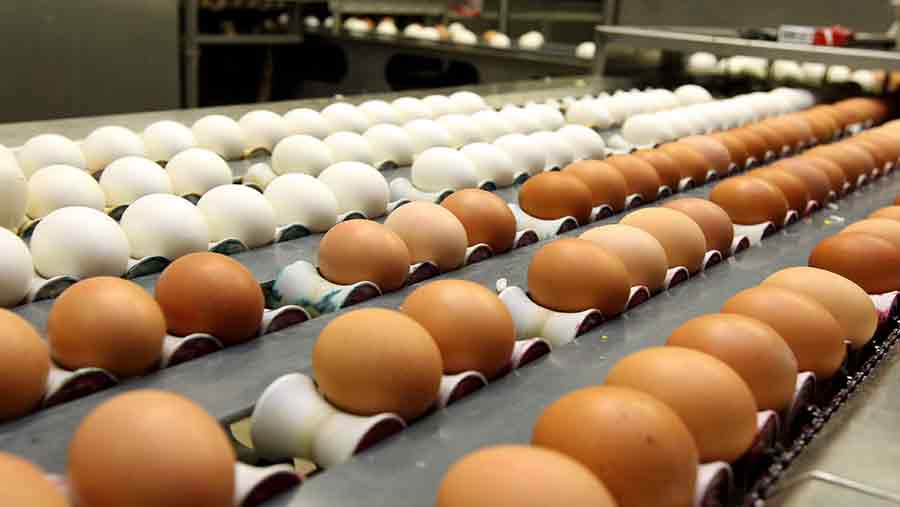Reduce second-quality eggs to improve returns
 © Action Press/REX Shutterstock
© Action Press/REX Shutterstock Greater attention to egg collection practices and carrying out key maintenance of farm packing machines can reduce seconds and improve returns on farms, according to a new study by consultants Adas.
The research looked at how to get the best out of existing systems, comparing second levels in the samples of farm-packed eggs and the percentage identified at the packing centre, based on egg grading data.
Four case study farmers were recruited and two visits were made to each site over a period of three months. It focused on a single house on each site and current collection practices were discussed and observations made of the egg collection process.
See also: Bfrepa award winners revealed
All eggs were hand-candled on the farm to determine the incidence of faults and the reasons for downgrading, with results discussed and actions taken before the return visit.
Findings
The results showed that on two farms, seconds were reduced by more than 5%, despite increased flock age. These reductions were almost entirely due to lower levels of fine, hairline cracks which were identified by candling, although they were not visible under normal farm inspection conditions.
If such reductions could be maintained and realised at the packing centre, it was estimated that the improvement could be worth at least 50p per bird to 72 weeks of age.
Jason Gittins, Adas senior consultant, said the necessary changes were generally quick and comparatively cheap to introduce.
“Key aspects include fitting new deflector bars on to conveyors, improving transfer points and fitting soft, padding materials to hard, conveyor-edge surfaces on to which the eggs are rolling.”
On one of the farms, the main issue identified was cracking within the farm packing machine due to a lack of a recent service.
Packing centre
A review of packing centre seconds data for the same flocks did not suggest any significant increase in cracking during transport or at the packing centre.
Robert Gooch, policy director at the British Free Range Egg Producers’ Association (Bfrepa), said a small change in the percentage of seconds could have a large impact on profitability.
Adas figures suggest that a 16,000 flock could save £2,400 during its lifetime (72 weeks) with a 1% seconds reduction, if the price differential was 60p/doz.
The study was the first project in Bfrepa’s new sustainability programme, with sponsorship drawn from a wide range of companies involved across the egg industry.
